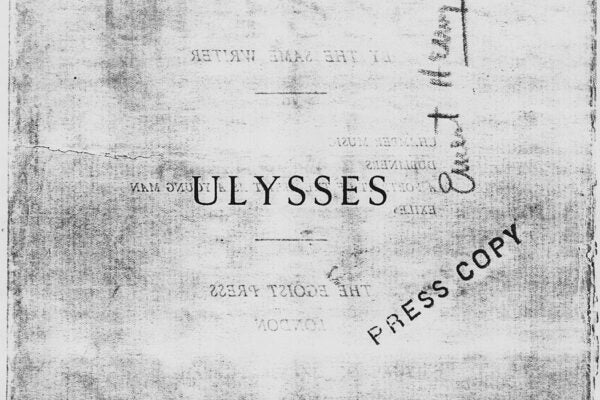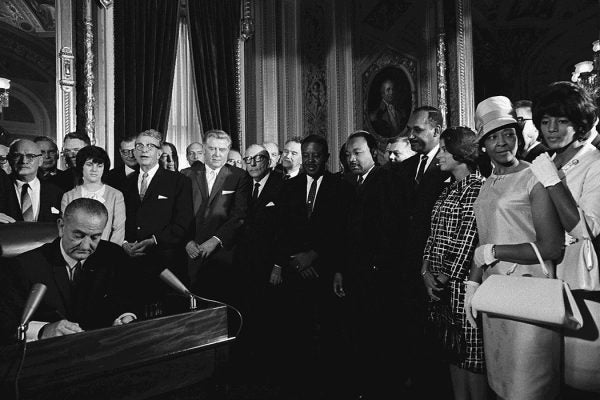Citizens United v. Federal Election Commission: Annotated
The 2010 decision, enabling the rise of super PACS, made possible new and more covert mechanisms for funding election campaigns in the United States.
Creating Communities for Disability Activism
In the 1960s, young disabled people found each other at camps and colleges, creating ever-expanding networks for challenging discrimination.
Ulysses Obscenity Decision: Annotated
In December 1933, Judge John Woolsey issued what would become one of the best known legal decisions on obscenity in United States history.
“What to the Slave is The Fourth of July?”: Annotated
On July 5, 1852, Frederick Douglass gave a Fourth of July speech that became his most famous public oration.
Proposition 6 (The Briggs Initiative): Annotated
Proposition 6, better known as the Briggs Initiative, was the first attempt to restrict the rights of lesbian and gay Americans by popular referendum.
The Voting Rights Act 1965: Annotated
The passing of the Voting Rights Act in August 1965 prohibited the use of Jim Crow laws and discriminatory tests to disenfranchise Black voters.
QAnon as Neo-Noir
The popular conspiracy theory has intriguing parallels with classic noir by Raymond Chandler and Dashiell Hammett.
Ruth Bader Ginsburg’s Radical Project Isn’t Finished
A fiery advocate against gender discrimination, Ruth Bader Ginsburg’s radicalism reveals itself in her argument for the Equal Rights Amendment.
The Case for Lowering the Voting Age
If the standard we hold for who can vote is the consent of the governed, why shouldn’t children be included?
Bryan Stevenson and America’s First Slavery Museum
The Equal Justice Initiative's new museum seeks to lead a more “honest conversation about racial and economic justice."









